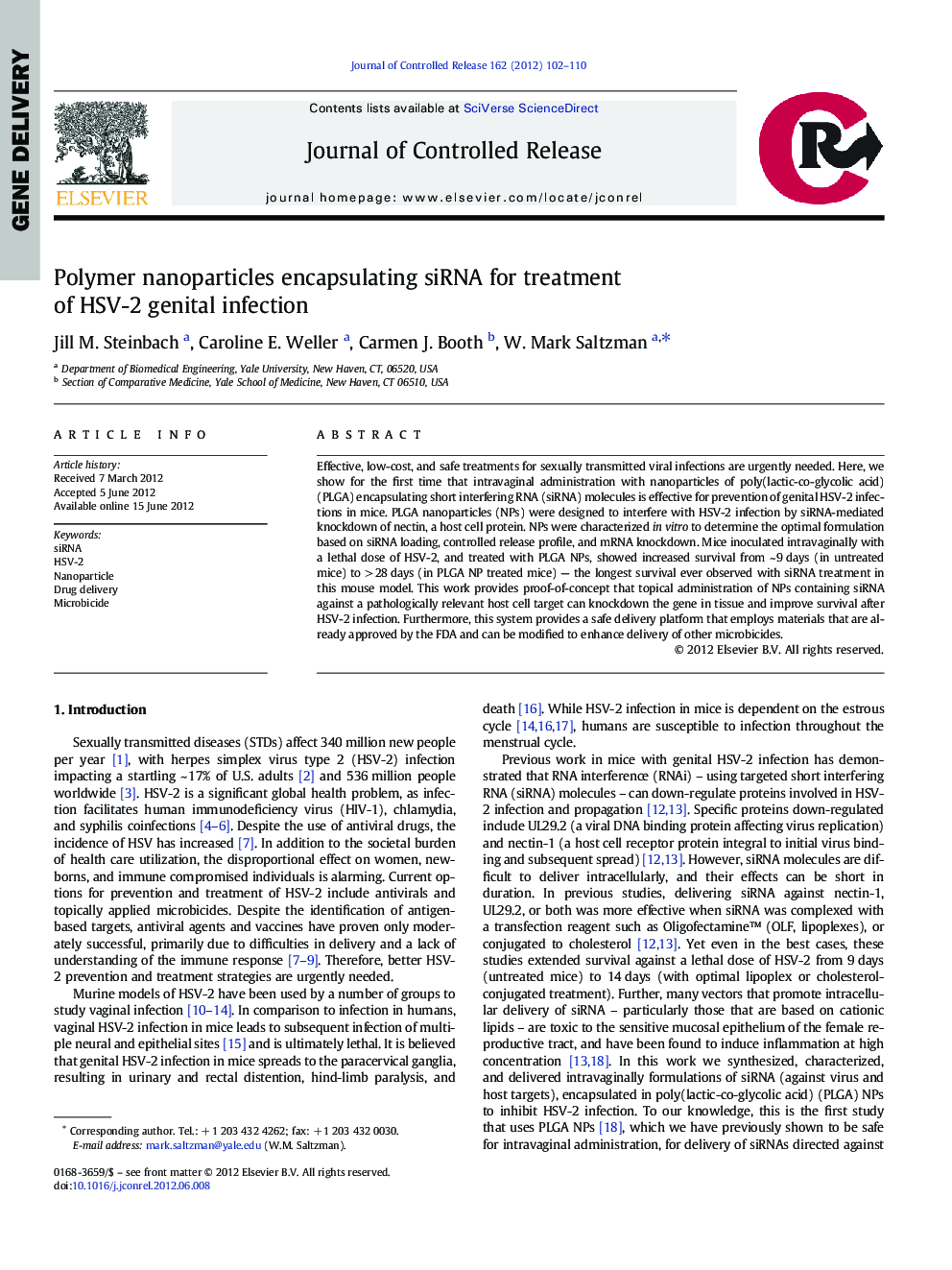| Article ID | Journal | Published Year | Pages | File Type |
|---|---|---|---|---|
| 1424587 | Journal of Controlled Release | 2012 | 9 Pages |
Effective, low-cost, and safe treatments for sexually transmitted viral infections are urgently needed. Here, we show for the first time that intravaginal administration with nanoparticles of poly(lactic-co-glycolic acid) (PLGA) encapsulating short interfering RNA (siRNA) molecules is effective for prevention of genital HSV-2 infections in mice. PLGA nanoparticles (NPs) were designed to interfere with HSV-2 infection by siRNA-mediated knockdown of nectin, a host cell protein. NPs were characterized in vitro to determine the optimal formulation based on siRNA loading, controlled release profile, and mRNA knockdown. Mice inoculated intravaginally with a lethal dose of HSV-2, and treated with PLGA NPs, showed increased survival from ~ 9 days (in untreated mice) to > 28 days (in PLGA NP treated mice) — the longest survival ever observed with siRNA treatment in this mouse model. This work provides proof-of-concept that topical administration of NPs containing siRNA against a pathologically relevant host cell target can knockdown the gene in tissue and improve survival after HSV-2 infection. Furthermore, this system provides a safe delivery platform that employs materials that are already approved by the FDA and can be modified to enhance delivery of other microbicides.
Graphical abstractFigure optionsDownload full-size imageDownload high-quality image (146 K)Download as PowerPoint slide
